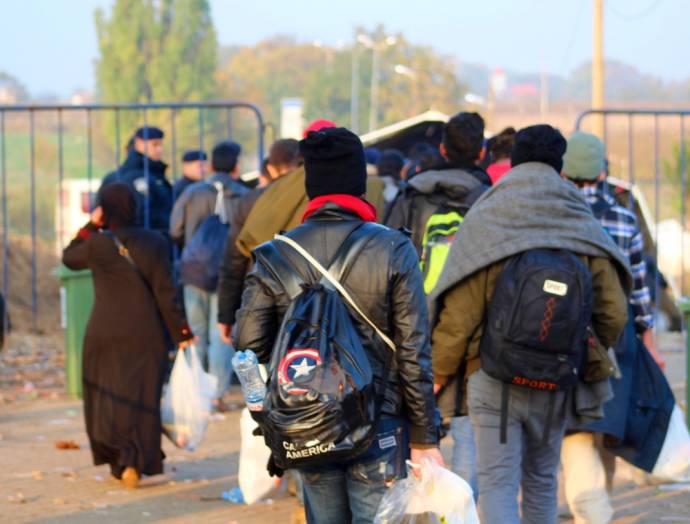Bervar Sternad said at today's presentation of the book on migrations on the Balkan Route that only a small percentage of asylum seekers stayed in Slovenia while 80-90% of them leave the country.
She said there were currently 400 people in Slovenia who have requested asylum.
The refugees, mainly citizens of Pakistan, Algeria and Syria, wait "too long" for the asylum procedures to conclude, she said, noting that these procedures took six months to three years.
The Interior Ministry said in a response that this was incorrect, noting that in 2017, it took 70 days on average to decide on a request for international protection.
The ministry also said that the share of asylum seekers who leave Slovenia during the procedure was even higher, adding that it was not possible to talk about a (direct) connection between the duration of the procedure and people leaving asylum centres self-willingly.
The number of requests rose significantly this spring, because large groups of up to 50 refugees were coming to Slovenia.
She attributes the rise to the favourable weather conditions and the opening of the migrant route from Bosnia-Herzegovina.
In June, the number of requests started falling "drastically", Bervar Sternad said, which she believes opened the question of Slovenia's implementation of the right to international protection.
The ministry said that this assessment was incorrect. Given the number of applications filed by 14 June (161), it cannot be concluded that the final number will be significantly lower than in the preceding months, it added.
If the trend continues, around 300 applications could be expected by the end of the month, which is more than in April (274) and on a par with May (365), the ministry noted.
Dnevnik journalist Uroš Škerl Kramberger, who visited two refugee centres in Bosnia-Herzegovina, meanwhile said that refugees had told him that some had already tried to come to Slovenia but that Slovenian police officers sent them back to Croatia, saying there was "no asylum in Slovenia". From there they were returned to Bosnia.
He said that Slovenia's border policy had obviously changed in June and that the border police were most probably instructed to ignore requests for asylum.
He had enquired about this at the Interior Ministry and police but received a reply that the returning of migrants was being conducted in line with the rules.
Neža Kogovšek Šalamon of the Peace Institute said that EU countries toughened their migration policies after the start of the refugee crisis. This has become the trend also for those countries which have so far been bright examples, she noted.






